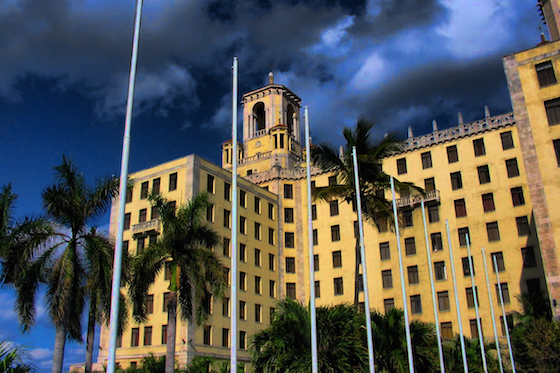In June, Starwood Hotels & Resorts began managing the Quinta Avenida in Havana, a hotel owned by Grupo de Turismo Gaviota, a wholly owned subsidiary of the Cuban military. It’s the first hotel to operate under a U.S. brand in Cuba since 1959.
Despite the fact that any U.S. operated hotel in the country would require that the government hold a majority ownership, the country is suddenly a green field of opportunity for tourism and hospitality brands including management contracts and joint ventures.
The opportunities
The U.S. Department of Transportation recently approved 14 daily routes to Cuba, and flights from Miami or Atlanta would take only an hour or two, respectively. The current administration has eased restrictions for Americans to visit the island, and there now are 12 broad categories under which a tourist can travel, though unfortunately, visiting beaches is not one of them.
Regardless, Cuba’s rich history and diverse customs, with influences from Spain, Africa, France and Asia, is a cultural mecca for visitors looking to experience local flavor with global influence. Cuba offers visitors an authentic getaway that isn’t overrun with overly promotional attractions.
The surge in American travel to Cuba, particularly Havana, over the past year has prompted hotel owners to evaluate their lodging accommodations. At first glance, the capital city’s room inventory of 7,800 hotel rooms as catalogued by STR would be appear to be adequate as it is among the largest when compared with other major cities in the region.
However, analysts believe the real number is close to half of that estimate, as many rooms have been taken off line due to deferred maintenance and decay. As such, Cuba has a clear need for greater and modern lodging capacity. Developers have an unparalleled opportunity to build new supply into the market and capitalize on unmet demand.

The challenges
Although the country is becoming more accessible to both U.S. tourists and businesses, there are still a number of significant restrictions on expansion into Cuba for hotels.
Perhaps the most restrictive limitation is that foreign investors are not allowed to own private property. There are a few instances where master-planned developments have been approved to allow foreign individuals to purchase a home, but large commercial ventures such as hotels and private property remain off limits for now.
Currently, there are two ways to enter the lodging market: through a management contract with one of the state entities that own hotel properties or through a joint venture, where the foreign investment will own up to 49% of the property and the Cuban government will own 51%. From a hotel company’s standpoint, a management contract would appear to be the “easiest,” though they may have to contribute some capital expenditure.
However, signing a contract is just the beginning of what many hoteliers describe as a surreal operating experience. All hotel employees must be hired through the government, and all purchases—such as hotel supplies or food and beverage amenities—must be made through a state agency. In many instances, everyday items are simply not available. Blackouts, particularly during the summer, are frequent.
In addition, in many instances the government will call for a political officer to form part of the executive committee, ensuring all HR and related government regulations are being implemented. In short, the operations component of hotels in Cuba is far from the proverbial walk on the beach.
The future of U.S. hotel expansion in Cuba
Cuba’s robust tourism industry is dominated by Canadian and European visitors. There is no question the number of U.S. tourists will grow over the next few years as travel restrictions ease, and the lodging industry is in a key position to support that growth.
However, progress will not be quick or without obstacles. U.S. hotel brands looking to break into Cuba should exercise patience and caution. An initial strategy could be to plant a flag or two, simply to establish a beachhead and wait until the political landscape improves. Hiring a general manager with experience working in the market is important to keep operations running smoothly, and a positive working relationship with the local government is essential for continued success.
As long as political relations continue to improve, Cuba offers a promising area for expansion. Hotel brands armed with the knowledge of the country’s business and cultural differences will thrive, as will investors who capitalize on the opportunities.
Fernando Garcia-Chacon is executive vice president of JLL’S Hotels and Hospitality Group.
